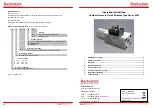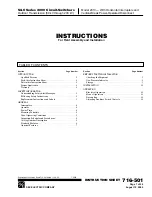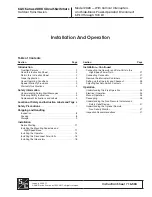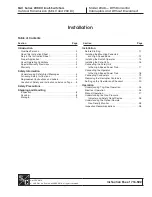
1-4
GVRP
As an implementation of GARP, GARP VLAN registration protocol (GVRP) maintains dynamic VLAN
registration information and propagates the information to the other switches through GARP.
With GVRP enabled on a device, the VLAN registration information received by the device from other
devices is used to dynamically update the local VLAN registration information, including the information
about the VLAN members, the ports through which the VLAN members can be reached, and so on. The
device also propagates the local VLAN registration information to other devices so that all the devices in
the same LAN can have the same VLAN information. VLAN registration information propagated by
GVRP includes static VLAN registration information, which is manually configured locally on each
device, and dynamic VLAN registration information, which is received from other devices.
GVRP has the following three port registration modes: Normal, Fixed, and Forbidden, as described in
the following.
z
Normal. A port in this mode can dynamically register/deregister VLANs and propagate
dynamic/static VLAN information.
z
Fixed. A port in this mode cannot register/deregister VLANs dynamically. It only propagates static
VLAN information. Besides, the port permits only static VLANs, that is, it propagates only static
VLAN information to the other GARP members.
z
Forbidden. A port in this mode cannot register/deregister VLANs dynamically. It permits only the
default VLAN (namely, VLAN 1), that is, the port propagates only the information about VLAN 1 to
the other GARP members.
Protocol Specifications
GVRP is defined in IEEE 802.1Q standard.
GVRP Configuration
GVRP Configuration Tasks
Complete the following tasks to configure GVRP:
Task
Remarks
Enabling GVRP
Required
Configuring GVRP Timers
Optional
Configuring GVRP Port Registration Mode
Optional
Enabling GVRP
Configuration Prerequisite
The port on which GVRP will be enabled must be set to a trunk port.
Configuration procedure
Follow these steps to enable GVRP:
















































